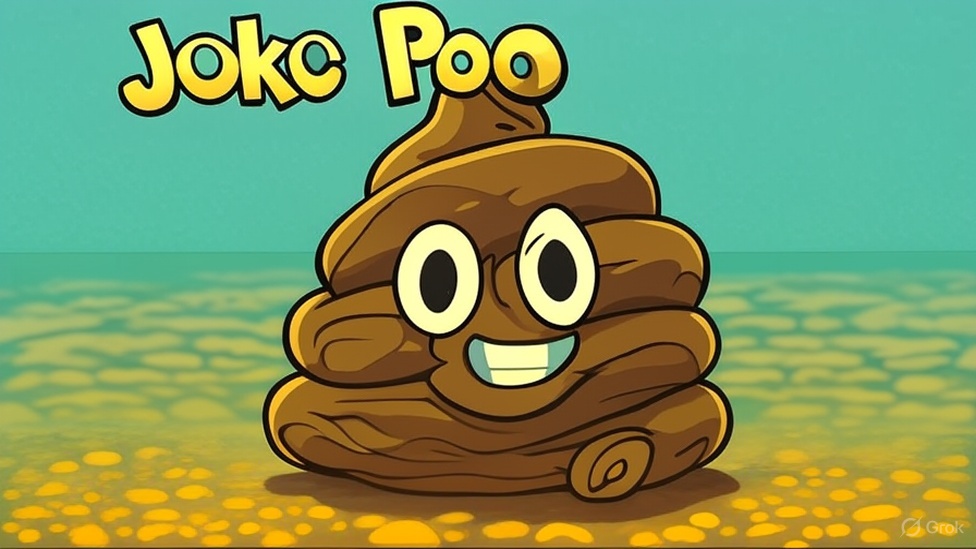In Russia, we really enjoy telling jokes about Soviet revolutionary Vasily Chapayev. No idea why he has to be the unlucky one. Despite my not-so-great English, I will try to translate one of those.
Petka (Chapayev's second in command) and Vasily Ivanovich swim across the river under the fire of the White Movement soldiers. Petka says:
– Vasily Ivanovich, drop your suitcase, otherwise we'll drown!
– I can't, Petka; there's a plan to capture Moscow in it.
They swim on. Petka says again,
– Vasily Ivanovich, drop your suitcase!
– I can't, Petka; this is a vital plan.
Finally and miraculously, they swam across the river unharmed. Chapaev opens a suitcase full of potatoes. He takes one in his hand and says,
– Let's say, Petka, this is the Kremlin Tower…
Joke Poo: The Code Review
A couple of junior coders, Alice and Bob, are frantically pushing code to production late at night, battling critical bugs. Alice groans:
“Bob, ditch that module you’re working on! It’s dragging us down!”
“I can’t, Alice! The entire user authentication system is in it!”
They keep coding furiously. Alice pleads again:
“Bob, seriously, that module has to go! We’re going to miss the deadline!”
“I can’t, Alice! It’s absolutely crucial code!”
Finally, bleary-eyed, they manage to push the code just before the deadline. Bob proudly opens the module in their IDE, takes a deep breath and comments on the first line:
“Okay, Alice, let’s say this ‘if’ statement is our entire security infrastructure…”
Okay, let’s dissect this classic Chapayev joke and then build something new upon it.
Joke Dissection:
- Characters: Vasily Chapayev (a famous, though somewhat romanticized, Soviet Civil War commander) and Petka (his loyal but often exasperated second-in-command).
- Premise: Chapayev is portrayed as stubborn, illogical, and perhaps a bit dim, clinging to the absurd idea that a suitcase full of potatoes contains a vital war plan.
- Humor: The humor arises from the juxtaposition of the high-stakes situation (swimming under fire, planning to capture Moscow) with the utterly mundane and ridiculous contents of the suitcase (potatoes). The final line provides the punchline, revealing the true level of Chapayev’s delusion. It’s a play on misplaced priorities and the gap between grand strategy and absurd reality.
- Cultural Context: Chapayev jokes are a specific element of Soviet/Russian humor, often poking fun at authority figures or the perceived absurdities of bureaucracy and ideology. The fact that he is a war hero makes it all the more hilarious and poignant.
Key Elements for Extension:
- Potatoes: A staple food, symbolizing the everyday and the ordinary.
- Military Plan: Representing grand strategy, power, and ambition.
- Vasily Chapayev: The iconic, flawed hero.
New Humor Piece (Witty Observation):
“It’s funny how in Russian humor, even a plan to capture Moscow can be reduced to a handful of potatoes. I guess that’s the ultimate metaphor for the revolution: start with lofty ideals, end up peeling.”
Amusing “Did You Know” Enhancement:
“Did you know that potatoes weren’t originally considered food in Russia? They were introduced by Peter the Great, but for a long time, peasants were wary of them. So, in a way, Chapayev mistaking potatoes for a vital war plan is doubly funny – it’s not just a misidentification of content but a misidentification of purpose itself! He probably thought that they could win through sheer potato power! “
New Joke (Playing on the Original):
Petka rushes into Chapayev’s tent, breathless. “Vasily Ivanovich, the enemy is advancing! They’re deploying new weapons – something called ‘Strategic Root Vegetables’!”
Chapayev smiles confidently, pulling out a potato. “Don’t worry, Petka. We have the countermeasure right here. According to my calculations… if we bury this potato at the exact point of impact… they’ll get a potato, grow it, harvest it, cook it, mash it… and feel completely satisfied with life, therefore we won’t have to fight.”
Petka sighs. “Are you sure about this plan?”
Chapayev nods gravely. “It’s all based on the power of the potato, it’s the only way to end wars.”


